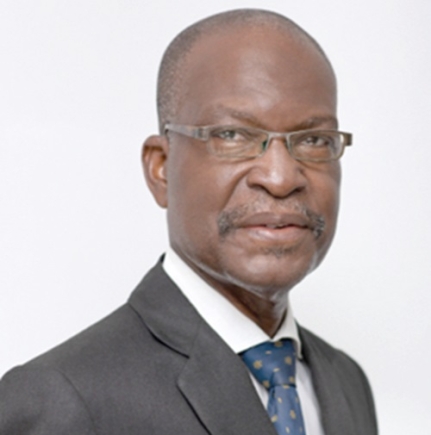
Prof. Quashigah calls for reforms in local governance system
A former Dean of the University of Ghana (UG) School of Law, Professor Kofi Quashigah, has called for reforms in the local governance system of the country to make it more effective and enhance development.
He said until that was done, the calls for the local government elections to be made partisan would not bring about the desired outcome.
Prof. Quashigah expressed the view on the topic "Local Government System, Election 2024, Security and Peace Building" during a panel discussion at this year's Annual New Year School.
Context
There have been calls in recent times for Article 243, Clause (1) and Article 55, Clause (3) of the 1992 Constitution to be amended to allow for the election of Metropolitan, Municipal and District Chief Executives (MMDCEs) and the participation of political parties in local government elections.
Proponents of these amendments believed when that was done, it would make the country’s local governance system more responsive to the needs of the people at the local level and enhance development.
Views
Sharing his views, Prof. Quashigah noted that the calls for the amendments were in the right direction but said without innovations to prevent politicians from hijacking the system, it would not bring the needed change at the local level.
He indicated that if those constitutional provisions were to be amended, then the country must think deep into how to protect the system from becoming a failure by not giving the politicians the free will to take over the system.
Measures
As part of the reforms, Prof. Quashigah suggested the introduction of a proportional representation to ensure that all political parties had some representation at the local level to prevent the winner-takes-all syndrome at the national level into the local government system.
He stated further that proportional representation would make it possible for excluded groups such as women, the physically challenged and the youth to have significant roles to play and contribute to development.
Prof. Quashigah said if partisan politics would work at the local level, then there must also be strong institutions, including a strong Civil Service that could not be bullied by politicians.
"The Civil Service must have professionals and technocrats who take decisions and stand by them," he said.
These reforms, he said must be made to ensure that when the provisions were amended, it would benefit the country and there would not be regrets.
Viable local government
Former Head of Department of Political Science, UG, Prof. Joseph Atsu Ayee, said the country had a lot of work to do to make the local government system viable as it was currently not so.
He described the local government system of the country as “centralised decentralisation" because it was not well decentralised.
He said introducing political parties at the local level was a must as currently, political party agents were already representing their political party interests at the local level.
Hybrid democracy
The Executive Director of the Institute for Democratic Governance (IDEG), Dr Emmanuel Akwetey, noted that the 30 years practice of hybrid democracy in terms of constitutional rule had not created the needed development for the country as people continued to struggle with basic needs of life including jobs.
The local government system, he said, had the potential to promote political and economic transformation and therefore amendment of the constitutional provisions remained the most promising avenue for the far-reaching reforms needed to catalyse the country's democratic and economic transformation.
